Statement: Iran permits IAEA to service surveillance equipment at nuclear facilities
Iran has agreed to allow the UN nuclear watchdog to service surveillance equipment installed at Iranian nuclear sites following talks with the International Atomic Energy Agency (IAEA)'s Director General Rafael Grossi in Tehran, Iran's permanent ambassador to international organizations in Vienna says.
Kazem Gharibabadi made the remarks in a string of tweets on Sunday, citing a joint statement issued by Iran and the IAEA following talks between Grossi and head of the Atomic Energy Organization of Iran (AEOI) Mohammad Eslami in Tehran on Sunday.
“IAEA’s inspectors are permitted to service the identified equipment and replace their storage media, which will be kept under the joint IAEA and AEOI seals in the Islamic Republic of Iran. The way and the timing are agreed by the two sides,” the statement said.
IAEA’s inspectors are permitted to service the identified equipment and replace their storage media which will be kept under the joint IAEA and AEOI seals in the Islamic Republic of Iran. The way and the timing are agreed by the two sides.4
— Gharibabadi (@Gharibabadi) September 12, 2021
Back in February, Iran and the IAEA reached a technical understanding under which Tehran agreed to keep the camera recordings from its nuclear sites for three months as a goodwill gesture in support of diplomacy, waiting to see whether the other parties to the 2015 nuclear agreement, officially known as the Joint Comprehensive Plan of Action (JCPOA), would bring the US back into full compliance with the deal.
The agreement came shortly after Iran decided to stop its voluntary implementation of the Additional Protocol to the nuclear Non-Proliferation Treaty (NPT) that allowed the IAEA to carry out short-notice inspections in Iran, denying the agency's inspectors access to the country’s nuclear facilities beyond the Safeguards Agreement.
Joint statement by the Vice-President and the Head of Atomic Energy Organization of the Islamic Republic of #Iran and the Director General of the IAEA @RafaelMGrossi.
— IAEA - International Atomic Energy Agency (@iaeaorg) September 12, 2021
📝 https://t.co/UTKiiUVAdy pic.twitter.com/APGZk8Bak8
The decision was made in accordance with a December 2020 law passed by the Iranian parliament – dubbed the Strategic Action Plan to Counter Sanctions – that prompted the Iranian administration to restrict the IAEA’s inspections and accelerate the development of the country’s nuclear program beyond the limits set by the JCPOA.
In another tweet, Gharibabadi referred to another part of the joint statement, saying that Iran and the IAEA "recalled and reaffirmed the spirit of cooperation” and the continuation of “mutual trust.”
The two sides “emphasized on the necessity of addressing the relevant issues in a constructive atmosphere and exclusively in a technical manner,” the statement added.
Joint Statement by th Head of AEOI and IAEA DG: the parties recalled and reaffirmed the spirit of cooperation and mutual trust and its continuation and emphasized on the necessity of addressing the relevant issues in a constructive atmosphere and exclusively in a technical manner
— Gharibabadi (@Gharibabadi) September 12, 2021
Gharibabadi further noted that Iran's nuclear chief and the IAEA director general have decided to maintain their mutual interactions and meetings at relevant levels, as a result of which the Iranian vice president and the IAEA head will meet on the sidelines of the upcoming general conference of the international body in Vienna.
In the framework of the existing cooperation, the two sides decided to maintain their mutual interactions and meetings at relevant levels. To this end, the Vice-President and the Head of AEOI will meet the IAEA DG at the sidelines of the upcoming General Conference,2
— Gharibabadi (@Gharibabadi) September 12, 2021
He added that Grossi plans to pay another visit to Tehran in the near future to hold high level consultations with Iranian officials “with the aim of enhancing cooperation between Iran and the IAEA in different fields and discussing current issues of mutual interest.”
and the IAEA DG will also visit Tehran in the near future to hold high level consultations with the Government of the Islamic Republic of Iran with the aim of enhancing cooperation between Iran and the IAEA in different fields and discussing current issues of mutual interest.3
— Gharibabadi (@Gharibabadi) September 12, 2021
At a joint press conference after his meeting with the IAEA chief, Eslami described the negotiations centering on technical issues as “constructive” and said “confidence-building” is what matters for Tehran and the UN nuclear watchdog.
The head of the AEOI said all issues between Iran and the agency are basically technical, rather than political, adding the two sides decided to continue their talks in an upcoming meeting.
Speaking to Press TV on Saturday night, an informed source said had noted that there will be no change in the IAEA’s lack of access to its camera footage at Iran’s nuclear sites during Grossi’s visit to Tehran.
“During Grossi’s visit to Tehran, there will be no change in the IAEA’s access to the data at [Iran’s] nuclear facilities, and the agency will still have no access to the surveillance cameras’ footage,” the source added.
EU official: Iran, IAEA agreement “gives space for diplomacy”
Meanwhile, Deputy Secretary General of the European External Action Service Enrique Mora tweeted that “the positive” agreement between Iran and the IAEA ensured “continuity of knowledge on Iran’s nuclear program.”
Appreciating the agreement, he added that it “gives space for diplomacy.”
This is a positive step towards ensuring continuity of knowledge on Iran’s nuclear programme. Gives space for diplomacy. I appreciate the efforts. EU’s aim remains full #JCPOA implementation by all. For that it’s crucial we resume #ViennaTalks as soon as possible. https://t.co/0dB9bhtwqy
— Enrique Mora (@enriquemora_) September 12, 2021
Stressing that the Vienna talks on the revival of the JCPOA must be resumed as soon as possible, Mora emphasized, “EU’s aim remains full #JCPOA implementation by all.”
Board of Governors will welcome Iran-IAEA ‘successful’ talks: Russia
In a related development on Sunday, the Russian ambassador to international organizations in Vienna, Mikhail Ulyanov, hailed the agreement between Iran and the IAEA, noting that the world body's Board of Governors will welcome the Grossi's “successful” visit to Tehran and its results during their forthcoming session on Monday.
“So, the visit of the #IAEA Director General Mr. R. Grossi to #Tehran was successful. Congratulations to the DG and Iran. No doubt that the IAEA Governors at their session starting on Monday will welcome the visit and its results,” Ulyanov said in a tweet.
So, the visit of the #IAEA Director General Mr. R. Grossi to #Tehran was successful. Congratulations to the DG and Iran. No doubt that the IAEA Governors at their session starting on Monday will welcome the visit and its results.
— Mikhail Ulyanov (@Amb_Ulyanov) September 12, 2021
In another tweet, the Russian diplomat emphasized that although the agreement between Iran and the IAEA was of a technical nature, but it is "very important, because it will help IAEA to "maintain knowledge" about Iran's nuclear program.
The #IAEA DG and #Iran agreed today on servicing video equipment at Iranian nuclear facilities. It I s technical but very important. It will help IAEA to maintain knowledge about nuclear programme. It is no less important for Iran to rebuff groundless speculations against it.
— Mikhail Ulyanov (@Amb_Ulyanov) September 12, 2021
Ulyanov on Friday called for an end to an "illusion" of adopting a resolution at the IAEA Board of Governors against Iran, saying Moscow would vote against it.
“There should be no illusion. If a draft resolution on #Iran is tabled in the #IAEA Board of Governors Russia will vote against,” he said in a tweet.
Operational concerns delayed US-Israeli aggression against Iran for a week: Report
Iran slams Israeli attacks on Lebanon, warn UNSC’s inaction to embolden regime
Iran says has ‘no choice’ but to fight back, holds no enmity toward American people
Bahraini police assaults crowds mourning loss of Ayatollah Khamenei
Iran posed no imminent threat to US: Pentagon tells Congress
Iran will hold no negotiations with US: Larijani
Despite Leader's martyrdom, Islamic Republic firmly in control and punishing the enemy
At least 31 killed in Israeli aggression on southern Lebanon after Hezbollah strikes


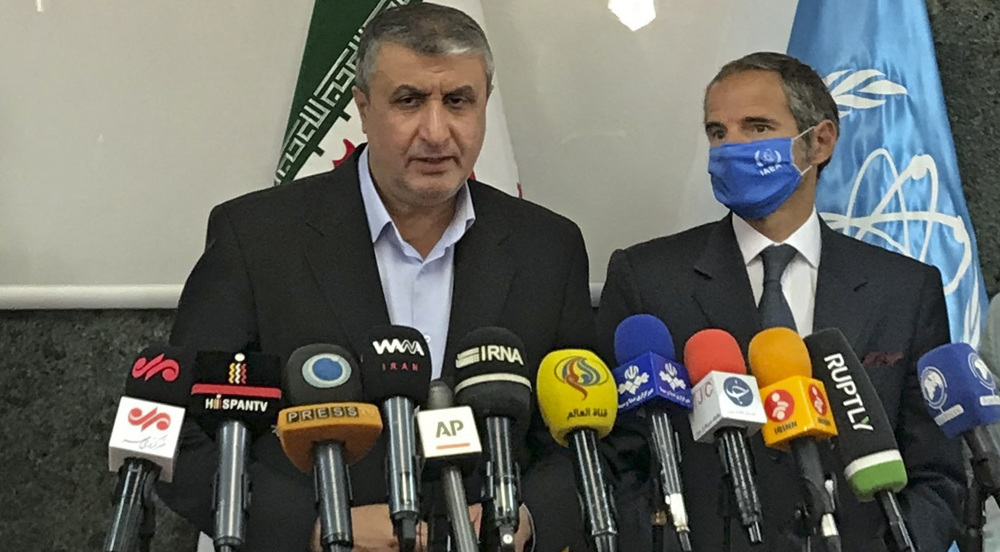
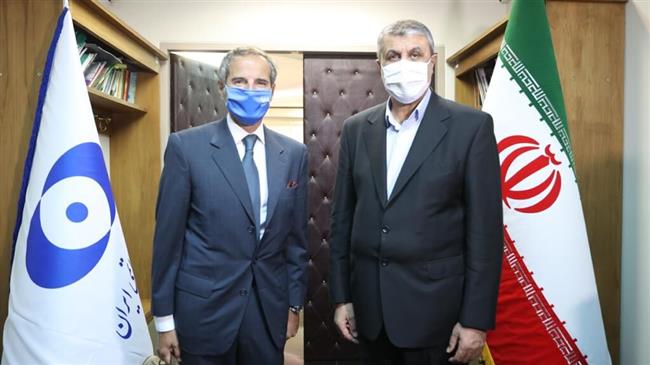
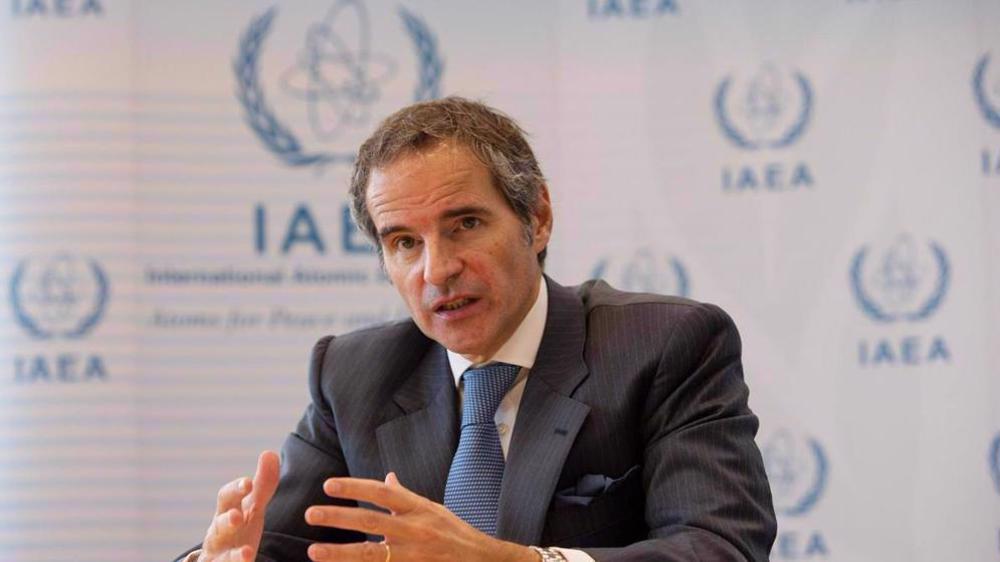
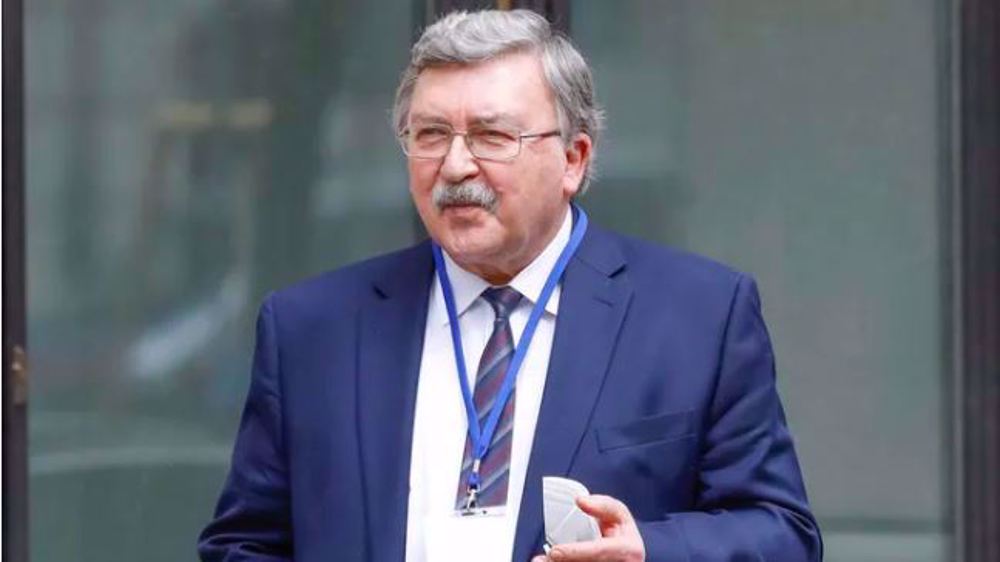
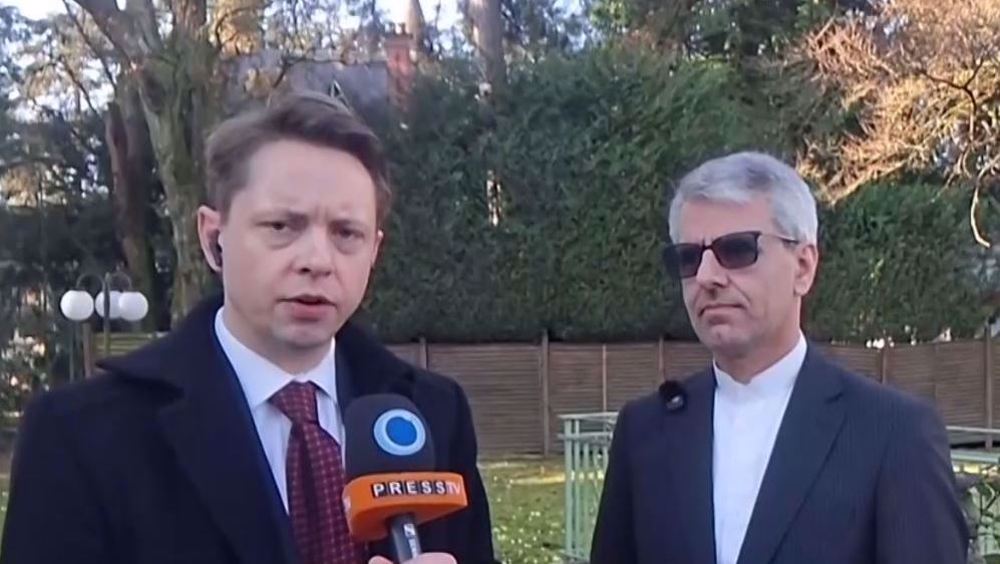
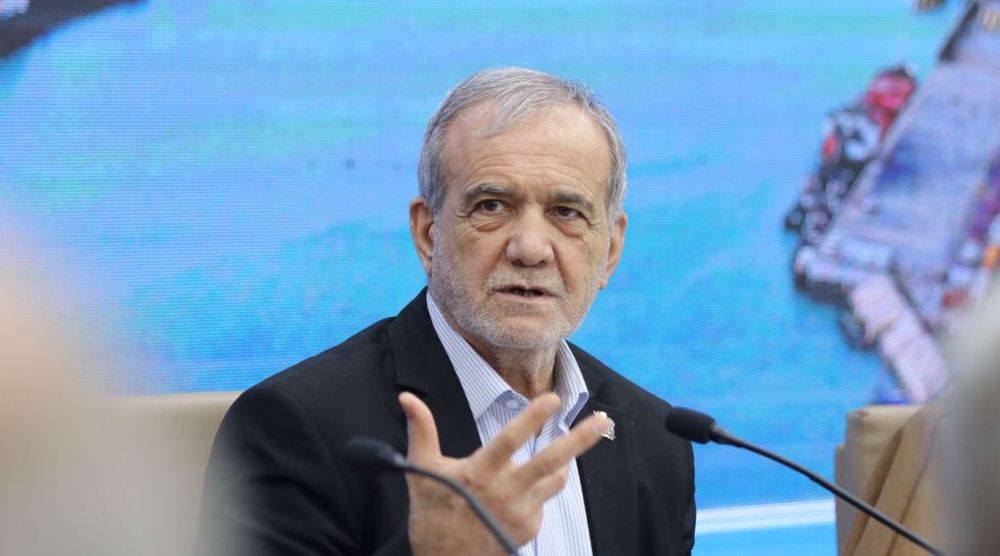
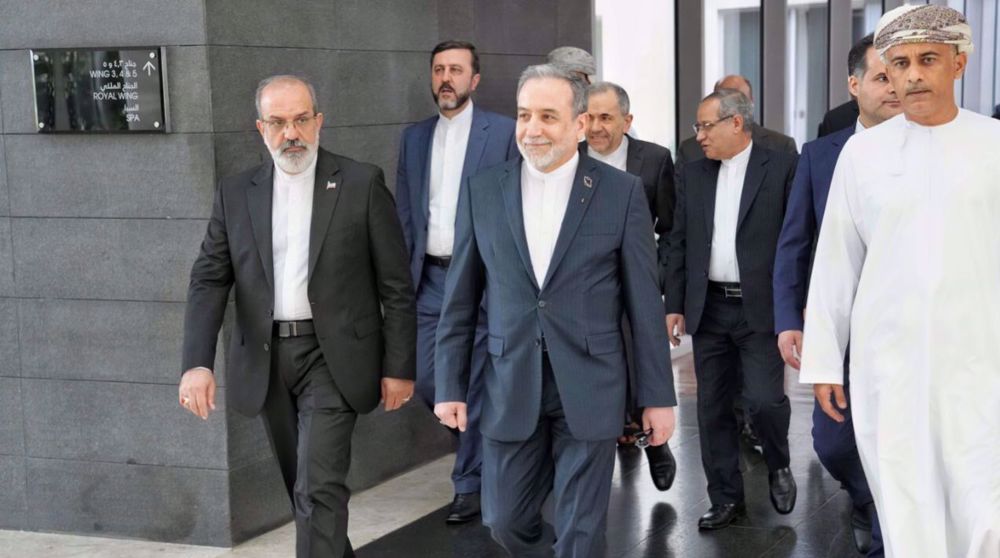




 This makes it easy to access the Press TV website
This makes it easy to access the Press TV website